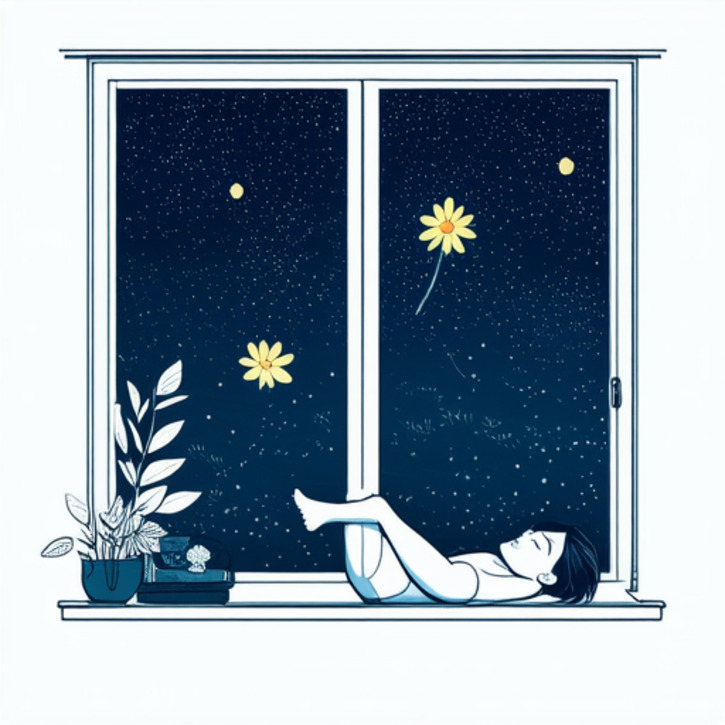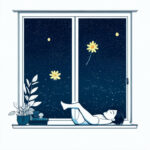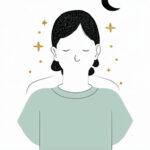Beyond Traditional Methods: New Approaches in Non Addictive Sleep Aids

Beyond Traditional Methods: Fresh Perspectives on Non-Addictive Sleep Aids
Introduction: Laying the Groundwork for Safer Sleep Solutions
What Exactly Is the Best Non-Addictive Sleep Aid?
In our whirlwind of a modern lifestyle, it’s no wonder people are on the hunt for sleep aids that offer a peaceful night without the worry of becoming overly reliant on them. When we talk about the "best non-addictive sleep aid," we're really referring to a mix of approaches, supplements, and behavioral tweaks designed to help you sleep naturally, without leaning on heavy-duty pharmaceuticals. With a flood of options out there, finding what really works means blending solid scientific research, tried-and-true natural wisdom, and feedback from actual users. More and more folks are exploring these fresh alternatives to take charge of their sleep health, letting them drift off naturally and sidestep the trap of long-term dependency. This journey towards safer, more nurturing sleep habits is as enlightening as it is transformative, reminding us that the secret often lies in a balanced, well-researched method.
Comparing the Old Guard with the New Wave
For decades, traditional sleep aids—mostly prescription medications and over-the-counter pills—have been the go-to solution, offering almost instant relief. But let’s be honest: these options often come with unwanted side effects and carry the risk of building dependency over time. On the flip side, the new, innovative methods take a broader, more holistic view. They don’t just aim to knock you out with chemicals; instead, they help restore your body’s natural rhythm. There’s a growing trend favoring mindfulness, herbal supplements, and even tech-savvy gadgets that work with your natural sleep cycle. This isn’t just about a more sustainable solution—it’s about boosting your overall health and wellness in the long run.
The Growing Demand for Safe Sleep Alternatives
More and more people are waking up (pun intended) to the crucial role sleep plays in overall well-being. Today’s high-stress, fast-paced world is driving a burgeoning need for alternatives to conventional sedatives. Across all age groups, folks are actively searching for ways to get a good night’s sleep without the fear of addiction or nasty side effects. Modern life, with its relentless demands, makes natural, non-addictive options that much more appealing. Experts are now underlining that quality sleep isn’t a luxury—it’s a vital part of managing both mental and physical health. With a growing pile of research backing up the negative impacts of sleep disruption, both the general public and health professionals are rallying behind solutions that blend safety with real effectiveness.
The Science of Sleep: Understanding Natural Regulation
Decoding Sleep Cycles
Think of a great night’s sleep as a symphony of cycles, each one—from light sleep to deep, restorative sleep—playing its own unique part. Every stage has a job, like locking in memories, mending the body, or balancing our mood. Even minor disturbances in these cycles can throw off our mental sharpness and overall health. By tuning into these natural rhythms, innovators are crafting interventions that seamlessly fit into each phase. The goal is simple: any sleep aid should harmonize with, not hijack, our natural sleep dance. When we keep this delicate balance intact, our innate sleep regulators get the chance to shine, paving the way for healthier, more refreshing rest.
How Non-Addictive Sleep Aids Work on a Biological Level
Beyond just improving sleep quality on the surface, non-addictive sleep aids dive deep into our body’s complex biological web. For example, natural approaches like herbal supplements or optimizing melatonin levels tap into our circadian clock, reinforcing our body’s natural sleep-wake signals. These methods boost our natural relaxation hormones and help keep stress chemicals at bay, smoothing the path to sleep. Meanwhile, practices like meditation and mindfulness spark neural pathways that encourage our parasympathetic nervous system to kick into gear—key for dialing down stress. In essence, these sleep aids are designed to work hand-in-hand with our physiology, supporting our body’s own sleep mechanisms without the pitfalls of introducing foreign substances.
Marrying Tradition with Innovation for the Best Non-Addictive Sleep Aid Strategy
The Drawbacks of Traditional Sleep Aids
Traditional sleep medications tend to bank on chemical compounds that push sleep into gear quickly. Yet, while they might work in a pinch, they often come with a slew of drawbacks. Think grogginess, disorientation, and, worst of all, a risk of dependency that can force dosage increases over time. On top of that, these drugs don't really tackle the stress or lifestyle factors that might be at the heart of your sleep troubles. For many, the short-term relief is heavily outweighed by the long-term issues of chemical dependency. This growing concern has prompted experts to look for alternatives that nurture natural sleep patterns by diving into the root causes of sleep woes instead of just smothering the symptoms.
The Shift Toward Holistic and Natural Techniques
In light of the limitations of traditional sleep aids, more people are turning to holistic and natural strategies. This fresh approach combines everyday lifestyle tweaks—like regular exercise and better sleep habits—with non-invasive supplements that support your body’s own rhythm. Practices such as meditation, yoga, and deep-breathing exercises help quiet the mind’s chatter, making it easier to wind down at night. There’s a noticeable change in narrative, with more individuals embracing methods that treat the mind, body, and even the environment as a whole. The beauty of natural sleep aids is that they coax your body into finding its own balance without the crutch of harsh chemicals, leading to a more balanced and sustainable sleep routine.
Blending Ancient Traditions with Modern Science
It turns out that our ancestors had plenty to teach us about a good night’s sleep. Many cultures historically used herbal teas, aromatherapy, and meditation rituals to combat restless nights. Today, these time-tested remedies are getting a modern scientific once-over, with researchers proving that they can be just as effective—and sometimes even more beneficial—compared to some conventional medications. By merging age-old wisdom with cutting-edge research, we bridge the gap between the past and present, forming a more rounded understanding of sleep. The result? A balanced approach that honors your body’s natural needs while tapping into the breakthroughs of modern science.
Exploring Emerging Techniques in Non-Addictive Sleep Aids
Mindfulness, Meditation, and the Art of Relaxation
Lately, mindfulness and meditation have exploded onto the scene as key players in non-addictive sleep aids. Regularly practicing mindfulness helps dial down anxiety and stress—the usual suspects behind restless nights. Techniques like guided imagery and deep breathing really help slow down those racing thoughts, gently nudging your mind toward a state of calm. With a little consistency, these practices don’t just extend your slumber; they also enhance the quality of your sleep. For many, these relaxation techniques have become the go-to, drug-free solution for reining in insomnia and guiding the body back to its natural sleep rhythm.
Herbal Remedies and Natural Supplements
When it comes to sleep, nature has been a trusted ally for centuries. Remedies like chamomile tea, valerian root, and passionflower have long been known to soothe the nervous system and create a calming effect. These natural supplements work gently to influence your body’s sleep-triggering neurotransmitters, all without the looming threat of dependency. Unlike some chemical-heavy options, these herbal solutions work in tandem with your body’s natural processes and typically come with only minimal side effects. Recent studies are shining a light on the effectiveness of these herbs, sparking renewed interest among both health professionals and those looking for a sustainable, holistic approach to better sleep.
Enhancing Sleep Hygiene in a Modern World
Our fast-moving, tech-saturated lives can really throw off our natural sleep patterns. That’s why modern sleep hygiene practices are so crucial—they help bridge the gap between our biological sleep needs and our hectic daily routines. Simple changes like sticking to a regular bedtime, dimming the lights in the evening, and cutting down on screen time can make a world of difference. Creating a bedroom environment that’s conducive to sleep—think optimal room temperature and minimized noise—can really bolster your natural ability to rest well. Tackling sleep hygiene with smart, science-backed strategies shows just how powerful small lifestyle tweaks can be in paving the way to a consistent, restorative sleep.
Embracing Technology for Cutting-Edge Non-Addictive Sleep Aids
Tracking Sleep with Wearable Devices
Not too long ago, wearable devices and sleep trackers were more of a novelty, but now they're becoming indispensable tools in the quest for quality sleep. These modern gadgets do more than just clock your sleep hours—they delve into sleep stages, monitor heart rate variability, and even chart long-term trends. The magic lies in the detailed insights they provide, empowering you to understand your unique sleep patterns and tweak your habits accordingly. Whether it's fine-tuning your bedtime routine or pinpointing disruptive overnight habits, these tech tools act as a supportive friend on your journey to better, non-addictive sleep.
The Rise of Cognitive Behavioral Therapy Apps
Alongside wearables, cognitive behavioral therapy (CBT) apps are lighting up the scene as powerful allies against insomnia. Using well-established psychological techniques, these apps help retrain your brain to adopt healthier sleep habits—no medication required. With interactive sessions, guided relaxation exercises, and progress tracking, they bring expert support right to your smartphone. It’s incredible how accessible reliable sleep therapy has become, making it easier than ever to get help from the comfort of your own bed. As more research backs these methods, CBT apps are rapidly carving out their space as a cornerstone of safe, non-addictive sleep solutions.
Innovative Software Solutions and Virtual Coaching
Beyond the world of apps, innovative software platforms and virtual coaching services are stepping up to offer personalized, real-time advice for better sleep. By blending data analytics with tailored guidance, these digital tools provide insights that really resonate with your individual sleep habits and lifestyle. You get custom feedback and actionable tips that make transitioning to healthier sleep practices feel both achievable and less overwhelming. This mix of technology and friendly expert support is proving to be a game-changer, empowering individuals to feel supported, informed, and ready to tackle their sleep challenges head-on.
Evidence at Work: Real Stories and Research Breakthroughs
Everyday Success Stories in Embracing Non-Addictive Sleep Solutions
There are countless stories of people who have transformed their sleep by ditching reliance on prescription pills in favor of natural methods. Many who once depended on heavy-duty sleep medications have now embraced mindfulness, herbal remedies, and lifestyle changes, experiencing lasting improvements in sleep quality. These firsthand accounts don’t just showcase better sleep—they also highlight overall boosts in mood, reduced anxiety, and a noticeable lift in daytime energy. Such inspiring journeys underscore the fact that with the right blend of natural strategies and modern insights, non-addictive sleep aids can truly change lives for the better.
What Clinical Studies Have to Say
Supporting these personal stories is a growing mountain of clinical research that validates the benefits of innovative, non-addictive sleep solutions. Studies have shown that approaches like cognitive behavioral therapy for insomnia (CBT-I), when paired with natural supplements and improved sleep hygiene, really make a difference in sleep latency, overall duration, and fewer nighttime awakenings. Collaborations between scientists and clinicians are continuously fine-tuning these methods, ensuring that the latest scientific insights are translating into everyday, effective solutions. For anyone on the hunt for safe, evidence-backed sleep aids, this research adds a robust layer of trust and reassurance.
Looking Ahead: Integrating Lifestyle with Superior Non-Addictive Sleep Aids
Crafting a Holistic Sleep Sanctuary
Peeking into the future of sleep health, it’s clear that the most effective strategies are going to be all about the bigger picture. We're talking about creating a holistic sleep environment that goes way beyond a quick fix—it’s about integrating regular physical activity, mindful eating, and solid stress-management techniques right alongside proven non-addictive sleep aids. Picture optimizing your space with ambient lighting, soothing sounds, and even a touch of aromatherapy. These comprehensive lifestyle tweaks not only help you fall asleep but nurture your entire sleep cycle, setting the stage for those rich, restorative nights we all crave.
The Trends Paving the Way for Tomorrow’s Sleep Solutions
The future of non-addictive sleep aids is gearing up to change the game, fueled by smart technology and growing consumer savvy. Expect to see more personalized sleep solutions as devices get smarter at tailoring tips to your unique sleep habits. There’s also an exciting fusion happening between ancient natural remedies and modern digital wellness tools. And let’s not forget the rising focus on mental health, which is increasingly recognized as a key piece of the sleep puzzle. These emerging trends signal an exciting era where safe, custom-tailored sleep solutions become more attainable than ever before.
Preparing Yourself for Future Innovations in Sleep Health
Looking forward, the landscape of sleep health promises even more dynamic, innovative solutions. Researchers and tech experts are hard at work developing tools that not only track your sleep patterns but can also predict and preempt disruptions before they become a problem. Imagine a world where virtual reality environments and advanced analytics merge to create bespoke sleep strategies just for you. As these future trends roll out, they’re set to revolutionize how we approach sleep—making the journey to restful nights smoother, smarter, and definitely more personalized.






